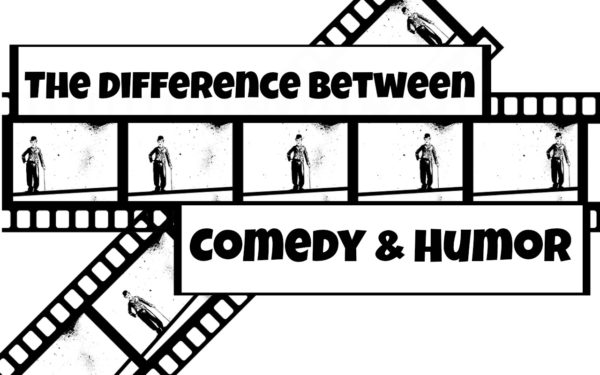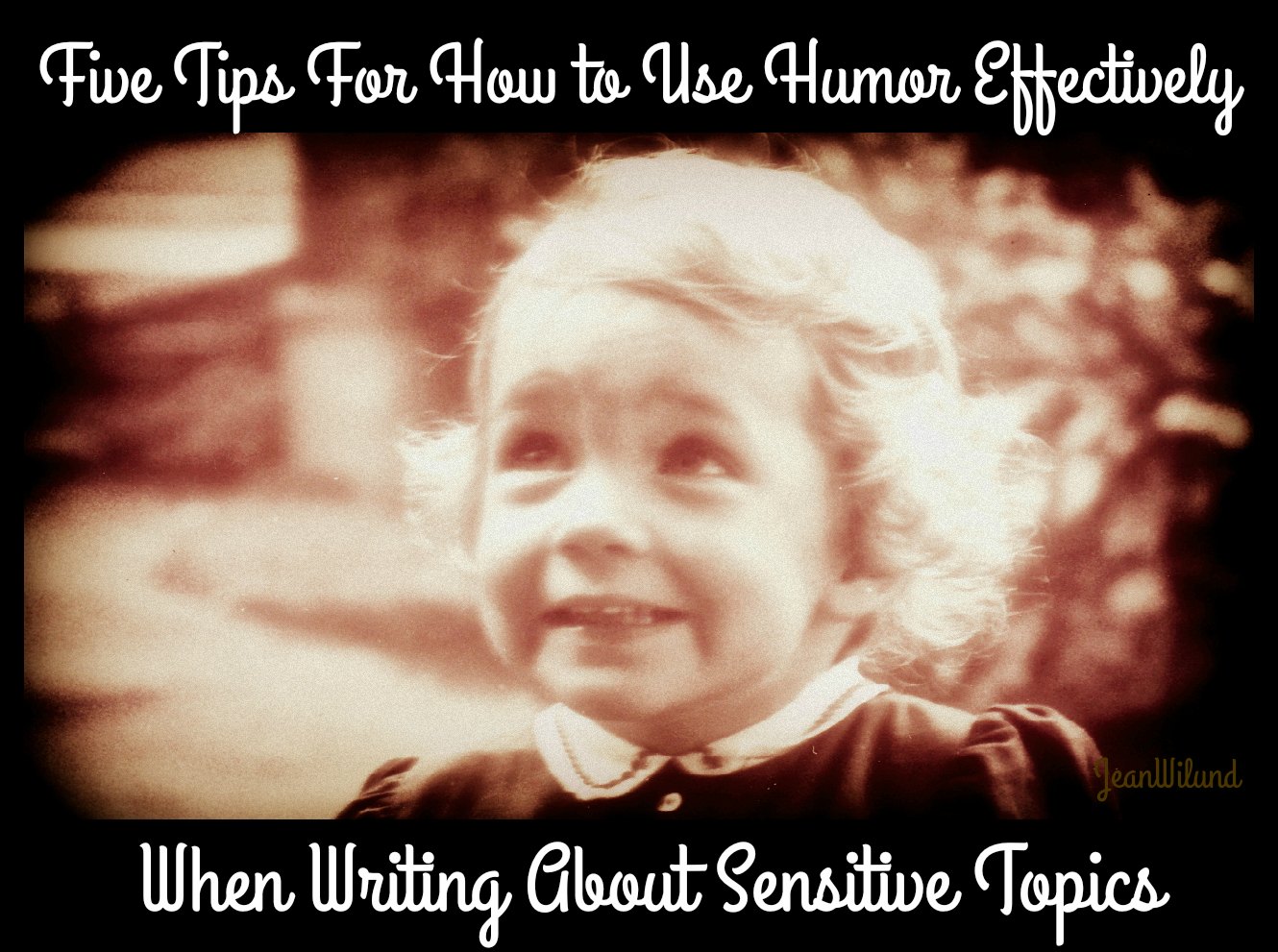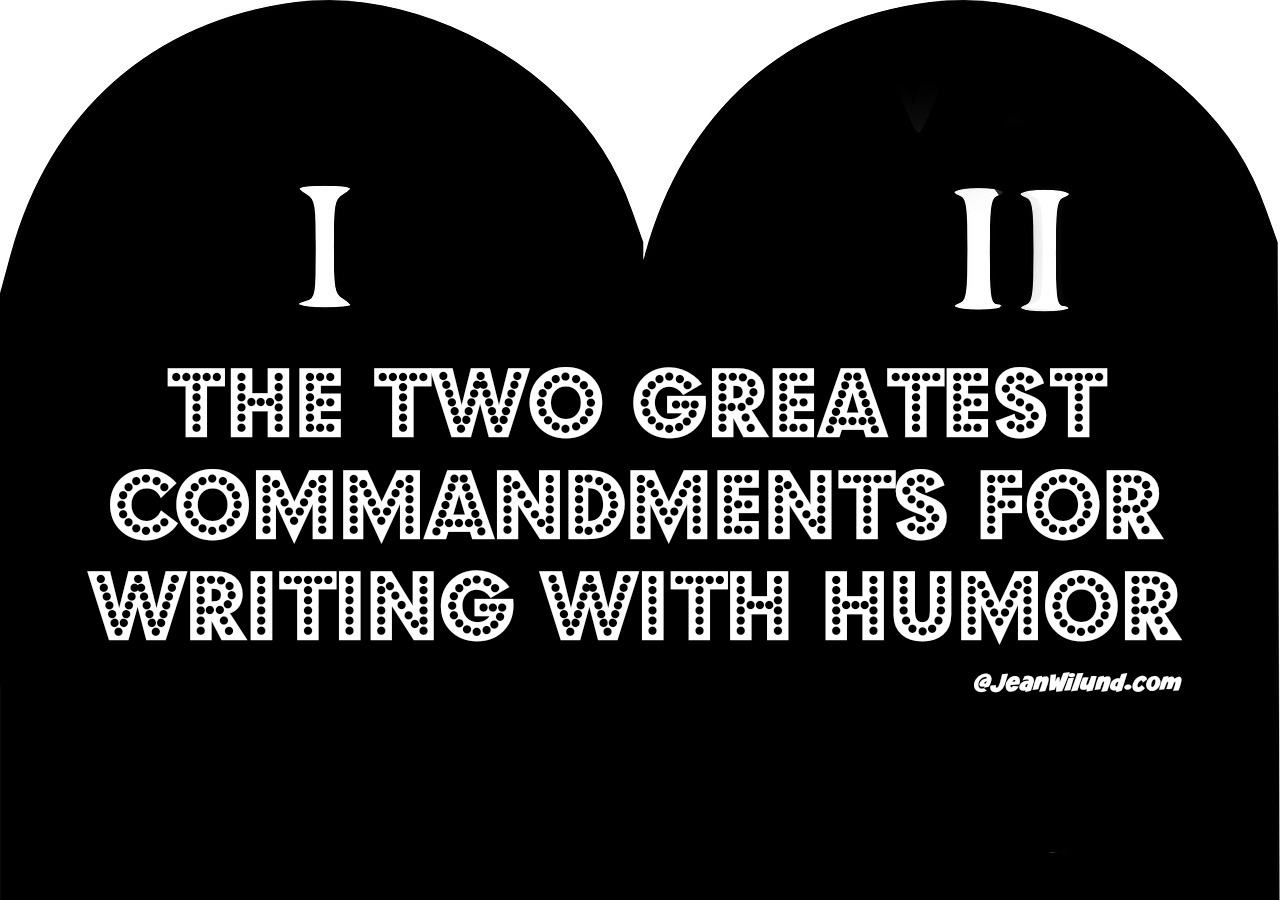I read a statement once that stuck with me:
All comedy has humor, but not all humor is comedy.
I liked that. Partly because, ironically, it made me laugh. But also because I had never stopped to think about the differences.
Let’s do that now.
Comedy vs. Humor
Humor is whatever makes us laugh in any situation.
Comedy is planned entertainment. Every word and action is chosen for its ability to produce a laugh.
If comedy doesn’t get a laugh, it’s not really comedy. It’s just painful.
Humor pops up out of nowhere. It’s born the moment we laugh. Before that, it was just life.
If you’re walking along a riverbank with your sweetheart, that’s life. It’s a wonderful life, but it’s still just life—until one of you trips and falls into the river. Suddenly it’s humor.
Comedy is attempted. Humor happens.
In the following Carol Burnett Show sketch featuring Tim Conway and Harvey Korman, we see both comedy and humor.
The writers of the comedy sketch carefully planned each line and action to draw the most laughter from the audience. Because of Tim Conway’s brilliant acting, they succeeded. Their attempt at comedy worked.
The humor comes in when actor Harvey Korman is incapable of staying in character and starts chuckling at Tim Conway.
Now the audience is laughing at both the comedy sketch and the humor of Harvey Korman uncontrollably cracking up during the sketch.
Comedy and Humor in Writing
Comedy writers write for the sole purpose of getting a laugh—for the reader’s sheer entertainment. Laughter is their objective.
Writers who use humor will include funny anecdotes, stories, or phrases, but their true goal is to deliver a message. Laughter is merely one of their tools.
Both the comedy writer and the writer who uses humor may write about war — not typically a funny topic — but their goals will be different.
The comedy writer writes about war to get a laugh, as with this military joke:
The sergeant-major growled at the young soldier, “I didn’t see you at camouflage training this morning.”
“Thank you very much, sir.”
A writer who uses humor is more likely to write about war to reinforce a point. Suppose he’s writing about the world’s increasing dependence on GPS over paper maps. He might choose to share the humorous, but true, story of when Nicaragua claimed it invaded Costa Rica by accident because of a Google Maps mistake.
For the comedy writer, laughter is the point. For the writer who uses humor, laughter reinforces the point.
Which Should You Write? Comedy or Humor?
If you choose to become a comedy writer, be funny. Always be funny. There’s little room for anything less than hilarious from a comedy writer.
And don’t trust your mama or your sweetheart to tell you if you’re funny enough for comedy. Instead, perform at a comedy club or before an objective audience. If they don’t laugh, pick a different profession. Or go to comedy school. They actually exist.
If you choose to be a writer who uses humor, your humor can fall flat and you may get away with it, depending on how flat it fell. The reader may not even realize you were trying to be funny. Whew.
Whether you choose to write humor or comedy, getting your readers to laugh is a sure way to keep them reading—at least for another line or two.







6 Comments
Thanks for explaining the difference. I love to laugh at what I read, but from your article, I discovered I like humor better than comedy.
You’re very welcome. I realized the same thing as I studied both. I’ll always love comedy, but humor is definitely my favorite.
LOL. Love Tim Conway.
Great Article, Jean. Undeerstanding the difference between comedy and humor will help me as I write. Who doesn’t like a little bit of humor. It’s like the spoon full of sugar helping the medicine. A small dose of humor spurs the reader to keep reading to the end.
Thanks, Laura!
I agree. Humor certainly keeps me reading. And understanding the difference between comedy and humor has helped me realize that I don’t have to be a comedian or be able to write a comedy sketch to inject humor into my writing. Whew! Thanks for your encouragement.
[…] The words comedy and humor are often used interchangeably. Although both terms have some elements in common, they also have some differences. Writing comedy is not the same as writing humor. Usually, the humorist writes an article or essay that is funny or amusing. The humorist’s work is intended to be read. The comedy writer, on the other hand, writes material to get laughs, in front of a watching audience. Comedians are known for writing materials for comedy films, situation comedies, sketch comedy, and stand-up comics. Comedy writing and humor writing are often based on truth. Frequently, both use the same humor devices like exaggeration, satire, and irony. Both also use the storytelling and anecdote. Both Humour writing and comedy writing requires a punchline and setup. The intention of both of them is to create a comic effect. Humourists tend to write about subject matters that are funny. They also write about serious topics or subjects with the intent of making them amusing. So do comedy writers. Despite many similarities, humor writing and comedy writing are different in some aspects. The intention of most comedy writing is to entertain by provoking laughter. On the other hand, most humor writing is more cerebral and subtle, intending to inform, amuse, persuade, and educate the audience. Humour writing is mostly done for print publications, such as books, newspaper, or magazines. Most comedy writing, on the other hand, is done for comedy films, TV sitcoms, stand-up comedy, and comedy sketches. References https://davehood59.wordpress.com/2009/11/25/humour-writing-versus-comedy-writing/ https://www.almostanauthor.com/the-difference-between-comedy-humor/ […]
I feel you only really tried to explain what the quote said, not what comedy and humor are/their differences. As if the quote was the accusation, and you an attorney attempting to prove it. That may have been the intent? Author Rick Bragg is as close to finding any evidence in your article as his writings or him as a person wouldn’t be described as comedy (writing) or “humor writing”… He’s a gifted storyteller, and even though I’m reading, anyone who has that ability can evoke every emotion in their writings or speech, but to keep any story alive and the audience captive, comedic relief and general lightheartedness is crucial. Bragg would not be described as a comedy or humor writer, nor would laughing throughout his work be the first or main commentary about it. I also must say, “humor writer” is a hilariously insulting term, by the definition you gave and just the thought of describing anyone with it, ever. As if a crossword puzzle ask for a five letter word for funny, comical, hilarious, or tried to use google translate for something clearly lost in its attempt.